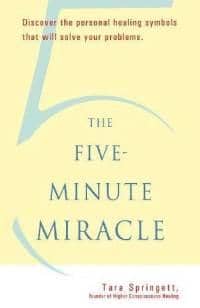Ms. Mindbody Kate Hanley shares the breathing exercise that will calm you back to sleep.
Insomnia takes different forms—either you can’t fall asleep to begin with, or you can fall asleep fine but you wake up in the middle of the night. This remedy can help with either type.
This simple breathing technique is particularly well-suited for helping you get back to sleep for three reasons: First of all, you can do it even when you’re lying in bed and exhausted, which is incredibly convenient. Second, taking a longer exhale requires a little act of surrender and helps you purge any tension you may be feeling. And finally, counting the length of your inhale and exhale is just enough of a distraction to take your attention off your thoughts.
This simple breathing technique is particularly well-suited for helping you get back to sleep for three reasons: First of all, you can do it even when you’re lying in bed and exhausted, which is incredibly convenient. Second, taking a longer exhale requires a little act of surrender and helps you purge any tension you may be feeling. And finally, counting the length of your inhale and exhale is just enough of a distraction to take your attention off your thoughts.
Taking a longer
exhale . . . helps you purge
any tension you may be
feeling.
exhale . . . helps you purge
any tension you may be
feeling.
Remedy:
Extended Exhale Breathing
Ingredients:
Two pillows-—one for under your head, one for under your knees
Time Needed:
As much time as you like
Instructions:
* Lie on your back. Place one pillow under your knees so that you feel extra comfortable and supported. This arrangement also encourages the muscles in your lower back and abdomen to release completely, which enables you to breathe more deeply. The other pillow goes under your head.
* Rest your hands on your belly and spend a few breaths feeling your hands rise as you inhale and fall on the exhale.
* Once this belly breathing has helped you calm down a little, begin counting the length of your inhales and exhales. Inhale for a count of four, and exhale for a count of eight.
* If this count causes you any stress or strain, modify it to a more appropriate length for you. The only parameter is that the exhale should be twice as long as the inhale. Repeat until you feel yourself getting sleepy, verrrrry sleeeeeepyyyy...
* If this count causes you any stress or strain, modify it to a more appropriate length for you. The only parameter is that the exhale should be twice as long as the inhale. Repeat until you feel yourself getting sleepy, verrrrry sleeeeeepyyyy...
Modifications:
If you’ve been at it for twenty minutes and you’re still not sleeping, get out of bed. On those long, dark nights when your mind won’t quiet down, get up, go in the other room, and write in your journal. It may not make any sense when you look at it by the light of day, but sitting and releasing all the thoughts that are swirling around eventually allows your natural urge for sleep to have its voice heard.
Benefits:
Soothes your nerves, which paves the way for the unrestricted breathing and total muscle relaxation that sleep brings. Gives you something to focus on besides your anxious thoughts and quiets your mind, making you more receptive to sleep’s gentle whispersOther Remedies to Try:
Chamomile Tea • Open Your Inner Gate
Rescue Remedy • Supported Child’s Pose
Rescue Remedy • Supported Child’s Pose
 Reprinted from The Anywhere, Anytime Chill Guide: 77 Simple Strategies for Serenity, by Kate Hanley. Published by skirt!, an imprint of Globe Pequot Press, Guilford, CT.
Reprinted from The Anywhere, Anytime Chill Guide: 77 Simple Strategies for Serenity, by Kate Hanley. Published by skirt!, an imprint of Globe Pequot Press, Guilford, CT.
Learn more about Kate Hanley at her Web site www.msmindbody.com.
Read more: http://www.beliefnet.com/Health/Healthy-Living/The-Anywhere-Anytime-Chill-Guide-to-Insomnia.aspx#ixzz20OOFY7pR


